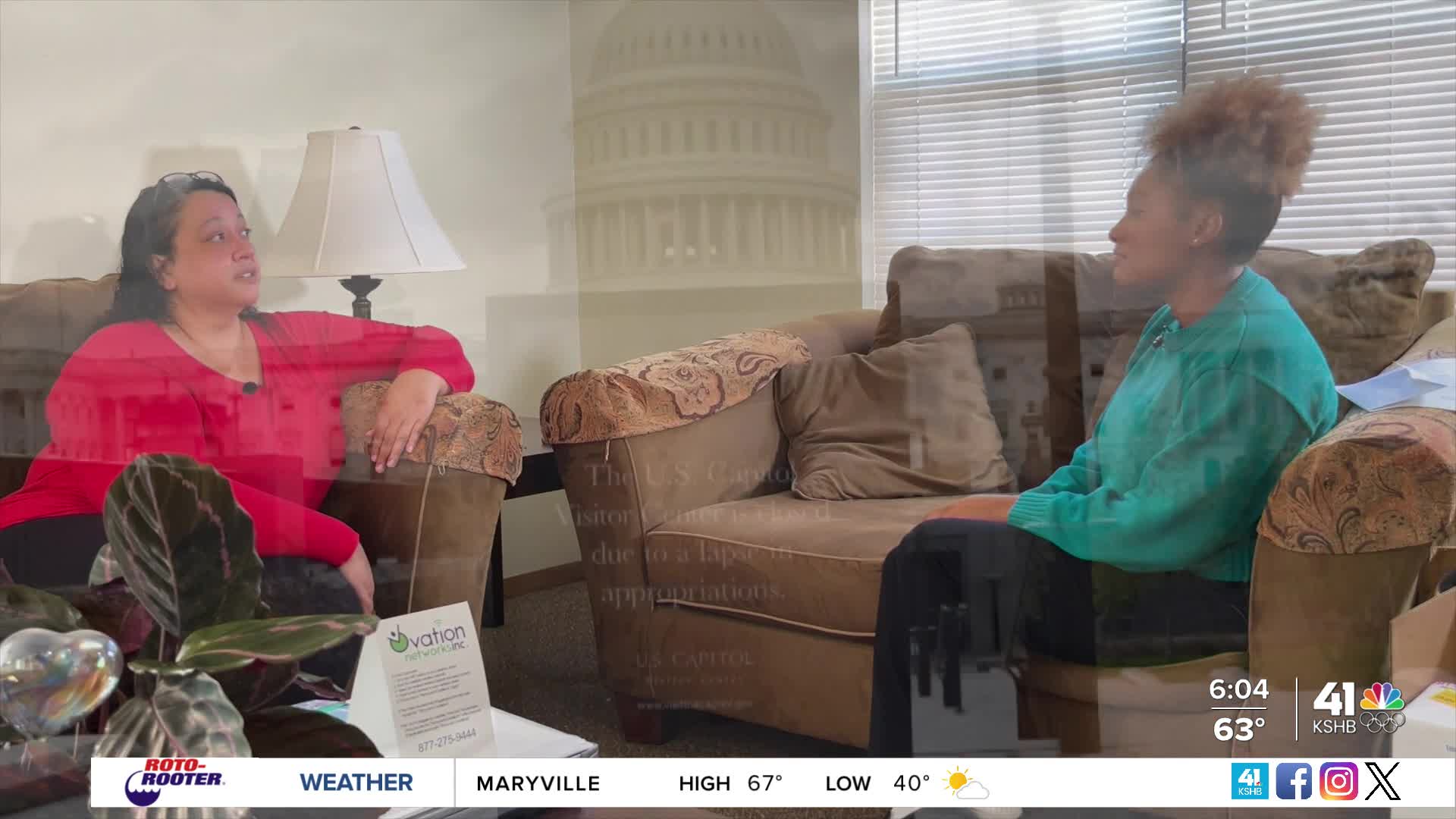KSHB 41 reporter Rachel Henderson covers neighborhoods in Wyandotte and Leavenworth counties. Share your story idea with Rachel.
—
The government shutdown is over and for federal employees, that means a return to work and a steady paycheck.
Alphia Hart, a federal contractor in Leavenworth County, is facing eviction after being furloughed for 42 days during the longest government shutdown in the nation's history.
"I didn't expect it to go past 30 days in all honesty," Hart said.

Hart says most of her friends are federal contractors or employees.
"We’re very optimistic and hopeful that things will turn out fine," Hart said.
Hart, who works at the U.S. Department of Agriculture, has not received a paycheck since the shutdown began.
She landed another job in the past month, but it’s also with a federal contracting company, which means she hasn't started that job yet.
“It’s been chaotic,” Hart said.
Like more than 600,000 furloughed federal employees nationwide, Hart is struggling to make ends meet.
"It's stressful because you don't know what's going on,” Hart said. “You can't plan for anything. Your income's been — it's gone."

Hart fell behind on her rent payments around the same time the shutdown began and now faces eviction.
It's a situation becoming increasingly common among federal workers KSHB 41’s Rachel Henderson has spoken with recently.
Hart has been in a legal dispute over her rent balance with her apartment complex since the end of September.
She says at this point, she's waiting for them to knock on her door and make her leave.
The situation is particularly challenging for Hart, who is caring for two daughters with health problems.
"You have to go into planning mode," she said. "But it's like how am I going to afford groceries, how am I going to pay bills, how am I going to get medication for myself and the kids?" Hart said.
I reached out to Hart's property management company, but have not heard back.
The United Way of Greater Kansas City, which provides legal aid to people facing eviction, has seen a dramatic increase in shutdown-related calls.
"This is not a situation that's going to end when the government shutdown is resolved," said Kera Mashek, senior director of communications for United Way of Greater Kansas City.
In recent weeks, the organization received 70 additional calls specifically related to the government shutdown since Henderson last spoke with them.
Landlord-tenant disputes have increased by 67% and the food need is 55% higher.
Mashek said these numbers speak to the need.
"We've had a lot of folks who have been reaching out to 211 for assistance who have never needed to reach out to the community for help before," Mashek said.

The organization typically focuses on rent and utility assistance as the first line of defense against eviction.
“If someone has been served an eviction notice, it's usually because they're behind on payments in one of those two areas," Mashek said.
Mashek said United Way’s 2-1-1 line also offers mental health referrals.
"It can be really frustrating, and we understand that,” Mashek said. “There are limited resources and dollars to go around," Mashek said.
Some assistance programs reset their funding periodically, which means people who were previously turned away might have new opportunities for help even if one organization is out of funds for the week.
"It is possible that the same referral we may have given you a week or two ago might still be a good one to call in another week," Mashek said.
For now, Hart’s optimism outweighs the chaos.
“There’s going to be a lot going on, but I look forward to the challenge,” Hart said. “I look forward to getting back to a routine, to working. You're providing a service that's actually benefitting the community beyond yourself.”
Hart created a GoFuneMe page Thursday for she and her daughters.
This story was reported on-air by a journalist and has been converted to this platform with the assistance of AI. Our editorial team verifies all reporting on all platforms for fairness and accuracy.
—




